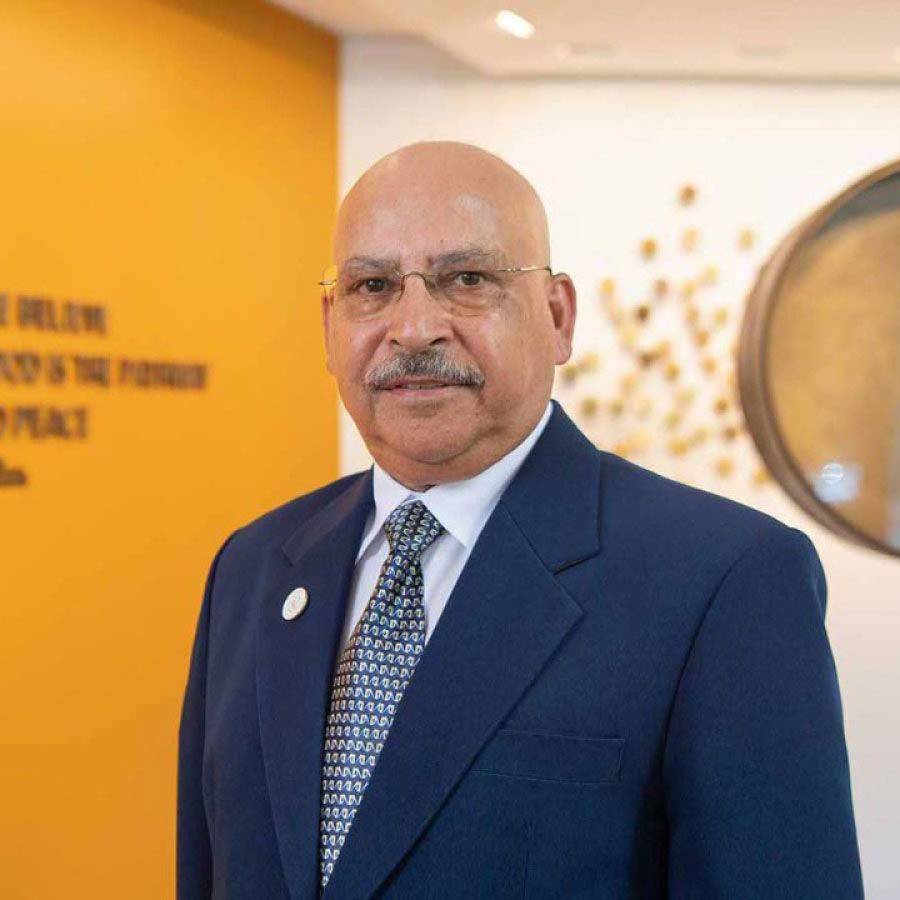Suresh Sharma.
Building trust through integrity
Nepal


Throughout his career, Dr Suresh Sharma FCCA has committed to upholding high ethical standards, being truthful and building trust.
‘Ethics are important to everybody,’ he says, ‘because ethics mean knowing what is right and what is wrong.’
For nearly 24 years, Sharma worked for the United Nations World Food Programme, most latterly as inspector general and director for its oversight office. He was also the first director of the programme’s ethics office. Since retirement, he has served on various UN oversight committees and is currently a member of the UN’s independent audit advisory committee.
Ethics are critical for the UN, which is funded by governments around the world and needs to ensure that its resources are used fairly and responsibly.
During his time as director of the World Food Programme’s ethics office, Sharma was charged with educating staff on the UN’s code of conduct, protecting whistle-blowers, and ensuring that officials – including those involved with procurement – disclosed conflicts of interest.
Now, as a member of the independent audit advisory committee, Sharma’s role includes advising the UN Secretary General and the UN General Assembly on the performance of the UN’s oversight functions, including the UN Ethics Office. ‘Our focus is on examining whether oversight functions, such as internal audit, evaluation and others, are doing a proper job and looking adequately at all the risks,’ he says. ‘We also look at how management is following up on the findings of oversight bodies. How are fraud, misappropriation and wrongdoing being investigated? We review these things, give our opinion and report to the General Assembly.’
Due to the nature of their work, accountants are often trusted to manage large sums of money. It is vital they honour this trust, Sharma says, and behave ethically. Otherwise, they risk fuelling corruption within society. He points out that the tone for behaviour is set at the top of organisations, starting with the board and executives, including the CEO and CFO. Finance leaders should therefore be conscious that the example they set is likely to be followed by others.
Accountants must make time to educate themselves thoroughly on ethics, including familiarisation with relevant codes of conduct and legislation. A significant challenge, as Sharma acknowledges, is that many examples of unethical behaviour are not covered by legal frameworks. Being able to assess whether behaviour is ethical or not requires accountants to demonstrate self-awareness and judgement. ‘It’s up to each individual to follow the best ethical practice,’ he explains.
Sharma believes that accountants can help to promote good ethics by being truthful and transparent, acting with integrity, doing thorough due diligence on contracts with external parties, and ensuring that organisational resources are only used for their stated purpose and are not misused. They should also speak up when something is not right and encourage other people to speak up when they see wrongdoing.
Additionally, it is important that accountants act fairly when making business decisions. In particular, they should be careful not to show favouritism, since a trigger for people behaving badly is believing that they are at a disadvantage compared with someone else.
So, is there any overarching message that accountants should take away when it comes to ethics? ‘Accountants should be aware that society considers them gatekeepers of ethics,’ Sharma concludes. ‘How they act can make the difference to whether corruption exists or not.’